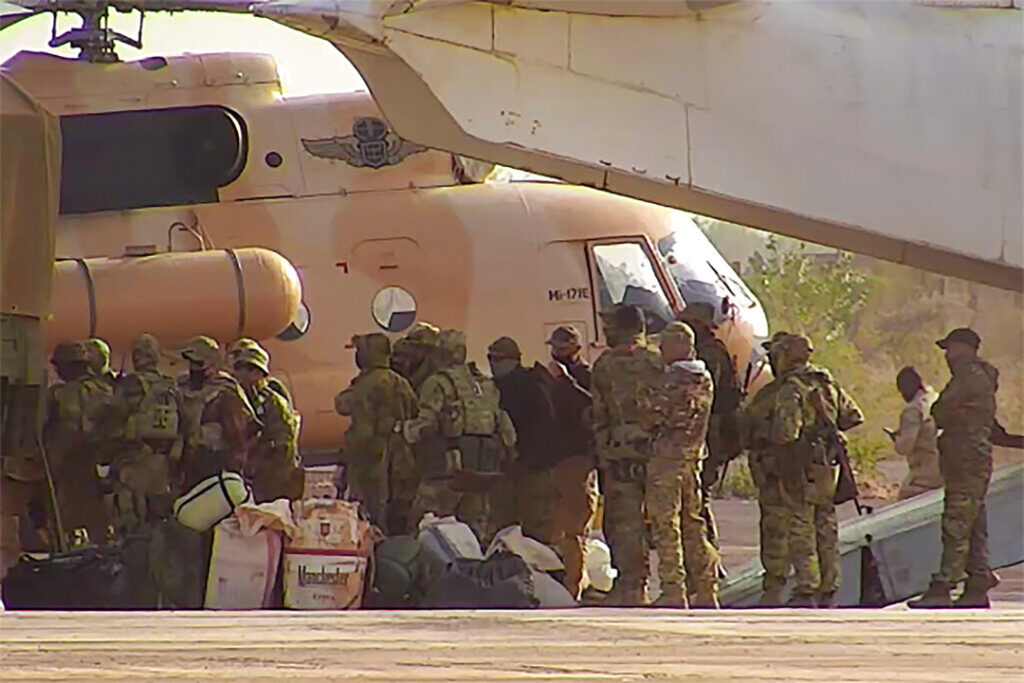ADF STAFF
Thousands of Malians are fleeing to the Mbera refugee camp in southern Mauritania to escape escalating violence in central Mali that they say is being driven by mercenaries associated with Russia’s Wagner Group.
Wagner Group mercenaries arrived in Mali in December 2021, invited by the ruling junta to train the Malian military. Since then, Wagner forces have taken part in military actions in the central part of the country, looting markets and killing civilians indiscriminately as the Malian military confronts jihadists operating around Timbuktu.
Since the arrival of the Wagner Group, the military’s actions have become more violent and more deadly, according to witnesses.
One witness seeking refuge at Mbera, identified by the pseudonym Ag, recently told Al-Jazeera that Malian troops came to his community accompanied by Russian soldiers. The Russians, he said, took everything they could find in the local market.
“Often they attack the people who try to escape,” Ag said. “If you try to run, they’ll kill you without knowing who you are.”
In March, the community of Moura experienced similar violence when Malian troops surrounded the community joined by men suspected of being Wagner mercenaries. Over the next five days, the soldiers looted houses, confiscated cellphones, held villagers captive and executed hundreds of men often based on their ethnicity.
The United Nations reported that human rights violations by the Malian military increased tenfold between the time Wagner mercenaries arrived in the country and the end of March.
The Armed Conflict Location & Event Data project, which tracks violence around the world, reported that more than 3,600 people were killed in battles, riots and other violence in Mali over the past year. More than 500 were killed in attacks against civilians.
The Wagner Group, which is controlled by a confidant of Russian President Vladimir Putin, continues to expand its presence in Africa. Along with Mali, the group has been active in the Central African Republic (CAR), Libya, Madagascar and Sudan. Wagner forces were defeated and forced to withdraw when they were hired to take on extremists in Mozambique’s Cabo Delgado region.
Where Wagner mercenaries go, human rights violations follow. In Libya, Wagner forces left hundreds of booby-trapped mines in civilian areas when they were forced to retreat after a failed attempt by Field Marshal Khalifa Haftar to take Tripoli in 2020. In the CAR, where Wagner forces protect and advise the president, they have mined roadsides in communities.
Since Wagner Group mercenaries arrived in Mali, refugees have flooded the Mbera camp in Mauritania. The United Nations estimated at the end of June that the camp is now home to more than 84,000 people. Seven thousand refugees arrived in March and April.
“There is a new element,” Ousemane Diallo, a researcher for Amnesty International, told Al-Jazeera. “The abuses and the violations by the Malian army are not new, but the scale and the brutality have heightened since January 2022 — and that is something that cannot just be dismissed.”
Wassim Nasr, an expert on the Islamic State group and jihadi terrorism, told Al-Jazeera that Wagner forces promote the kind of heavy-handed tactics now used by the Malian military under the guise of raising the cost of joining jihadist groups.
However, as has happened in the CAR and elsewhere, Wagner’s tactics encourage the civilian population to turn to jihadists for protection.
“They think that they will terrorize the terrorists, and this is the way to do it — but it shoots back, always,” Nasr said. “It only fuels recruitments.

